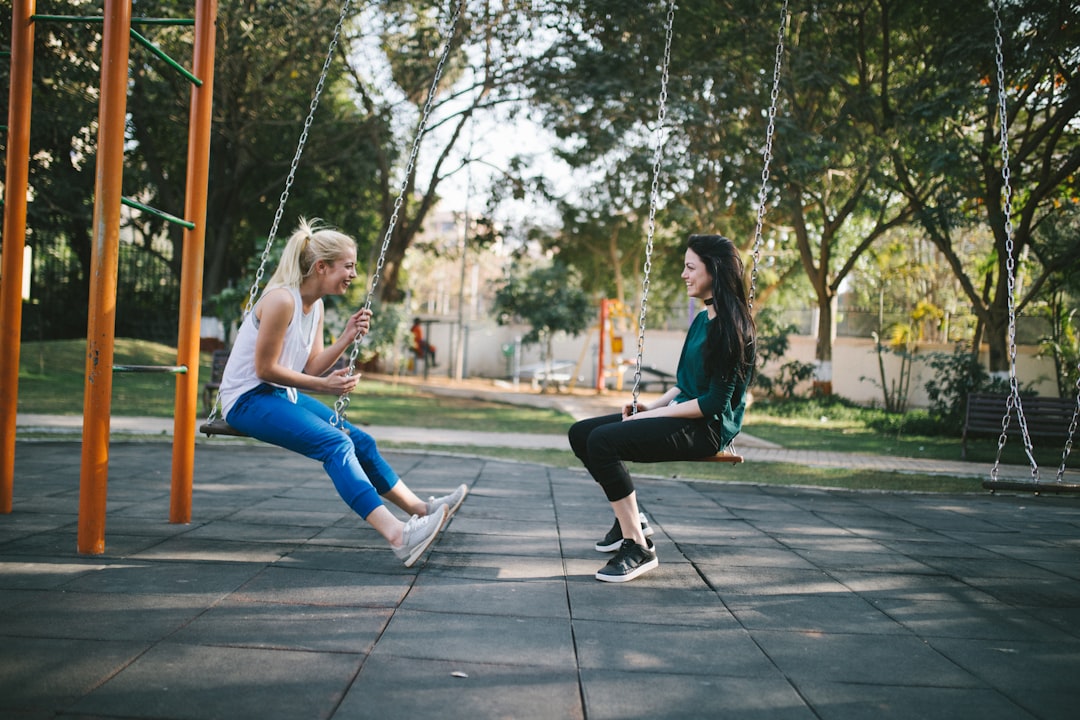Support our educational content for free when you purchase through links on our site. Learn more
What Does BFF Mean in a Bad Way? [2024] 😱
Have you ever wondered what BFF really means? Most of us know that BFF stands for “Best Friends Forever,” a term commonly used to describe a close friendship. But did you know that BFF can also have a negative connotation? In some cases, BFF is used as an abbreviation for “big, fat freak.” 😲
In this article, we will explore the different meanings of BFF, including its negative usage. We’ll dive into the history of the term, how it is used, and how to identify if your child is using it in a negative way. We’ll also provide tips on how to talk with your child about the use of the BFF slang word. So, let’s get started and uncover the hidden side of BFF! 🕵️♀️
Table of Contents
- Quick Answer
- Quick Tips and Facts
- Background: The Evolution of BFF
- The Meaning of BFF: More Than Just Best Friends Forever
- The Dark Side of BFF: When Best Friends Become Big, Fat Freaks
- How to Identify if Your Child is Using the BFF Slang Word
- How to Talk with Your Child About the Use of the BFF Slang Word
- FAQ
- Conclusion
- Recommended Links
- Reference Links
Quick Answer
In a nutshell, BFF stands for “Best Friends Forever.” It is a term commonly used to describe a close friendship. However, in some cases, BFF can be used negatively as an abbreviation for “big, fat freak.” This negative usage is less common but still exists. It’s important to understand the context in which BFF is being used to determine its meaning.
If you’re looking for the best parental control app to monitor your child’s phone usage and protect them from negative influences, check out the MMGuardian Phone. It offers a selection of Samsung phones with MMGuardian built-in, starting from $119.
Quick Tips and Facts
✅ BFF stands for “Best Friends Forever” and is commonly used to describe a close friendship.
✅ In some cases, BFF can be used negatively as an abbreviation for “big, fat freak.”
✅ The negative usage of BFF is less common but still exists.
✅ It’s important to understand the context in which BFF is being used to determine its meaning.
Background: The Evolution of BFF
To truly understand the meaning of BFF and its negative connotation, we need to take a trip down memory lane. The term BFF has its roots in the early 1990s when it first emerged as a popular slang term among teenagers. It quickly gained popularity and became a staple in teenage conversations.
Originally, BFF was used exclusively to denote a close friendship. It was a way for teenagers to express their bond with their best friends. The term quickly spread through schools and social circles, becoming a part of everyday teenage language.
However, as with any slang term, the meaning of BFF evolved over time. While it still retains its positive meaning of “Best Friends Forever,” it has also taken on a negative connotation in certain contexts.
The Meaning of BFF: More Than Just Best Friends Forever
BFF, as we know it, stands for “Best Friends Forever.” It is a term used to describe a close friendship, someone you consider your best friend. When you refer to someone as your BFF, you are expressing the depth of your connection and the importance of their presence in your life.
Having a BFF means having someone you can rely on, trust, and confide in. It’s a special bond that goes beyond the boundaries of a regular friendship. Your BFF is the person who knows you inside out, who has seen you at your best and worst, and who has stood by your side through thick and thin.
In a world where friendships come and go, having a BFF is like having a rock-solid foundation. It’s a relationship that withstands the test of time and remains strong no matter what challenges come your way.
The Dark Side of BFF: When Best Friends Become Big, Fat Freaks
While the positive meaning of BFF is widely known and accepted, there is a darker side to this term. In some cases, BFF is used negatively as an abbreviation for “big, fat freak.” This negative usage is less common but still exists, particularly among teenagers.
When BFF is used in a negative way, it becomes a hurtful and derogatory term. It is often used to mock or insult someone, implying that they are overweight or undesirable. This usage of BFF is hurtful and can have a lasting impact on the person being targeted.
It’s important to note that the negative usage of BFF is not widespread and is not the primary meaning of the term. However, it’s crucial to be aware of its existence and to educate ourselves and our children about the potential harm it can cause.
How to Identify if Your Child is Using the BFF Slang Word
As parents, it’s essential to stay informed about the slang words and phrases that our children are using. This includes understanding the different meanings of BFF and being able to identify if your child is using it in a negative way.
Here are some signs that your child may be using the BFF slang word negatively:
-
Changes in behavior: If your child suddenly starts using derogatory language or making hurtful comments, it could be a sign that they are using BFF in a negative way.
-
Negative influence: If your child is spending time with friends who engage in bullying or use derogatory language, they may be influenced to use BFF negatively.
-
Online behavior: Monitor your child’s online activities, including social media platforms and messaging apps. Look out for any instances where they use BFF in a negative context.
-
Peer pressure: Peer pressure can play a significant role in how teenagers use slang words. If your child’s friends are using BFF negatively, they may feel pressured to do the same.
If you notice any of these signs, it’s important to have an open and honest conversation with your child about the use of the BFF slang word.
How to Talk with Your Child About the Use of the BFF Slang Word
Having open and honest communication with your child is crucial when discussing sensitive topics like the use of slang words. Here are some tips on how to approach the conversation:
-
Create a safe space: Make sure your child feels comfortable discussing their experiences and concerns without fear of judgment or punishment.
-
Ask open-ended questions: Instead of interrogating your child, ask open-ended questions that encourage them to share their thoughts and feelings about the use of slang words like BFF.
-
Listen actively: Give your child your full attention and listen to what they have to say. Avoid interrupting or dismissing their feelings.
-
Educate and explain: Provide your child with information about the different meanings of BFF and the potential harm it can cause when used negatively. Help them understand the importance of using language responsibly.
-
Set boundaries: Establish clear boundaries and expectations regarding the use of slang words. Let your child know what is acceptable and what is not.
By having an open and non-judgmental conversation with your child, you can help them navigate the complexities of teenage slang and promote responsible language use.
FAQ
What does BFF mean in slang?
BFF is a slang term that stands for “Best Friends Forever.” It is commonly used to describe a close friendship.
What else could BFF stand for?
While BFF primarily stands for “Best Friends Forever,” it can also be used negatively as an abbreviation for “big, fat freak.”
What is the alternate meaning of BFF?
The alternate meaning of BFF is “big, fat freak.” This negative usage is less common but still exists.
What does BFF ❤️ mean?
BFF ❤️ is an expression of love and affection for a best friend. The heart emoji represents the deep bond and connection between friends.
Conclusion
In conclusion, BFF stands for “Best Friends Forever” and is commonly used to describe a close friendship. However, it’s important to be aware that BFF can also be used negatively as an abbreviation for “big, fat freak.” While the negative usage of BFF is less common, it’s crucial to educate ourselves and our children about the potential harm it can cause.
When discussing sensitive topics like the use of slang words, it’s important to have open and honest conversations with our children. By creating a safe space for dialogue and providing information and guidance, we can help our children navigate the complexities of teenage language and promote responsible communication.
Remember, having a BFF is a special bond that should be cherished and celebrated. Let’s encourage healthy friendships and foster a positive environment where everyone feels valued and respected.
For more insightful articles about friendship and advice, check out our Friendship Quotes and Friendship Advice categories. And if you’re curious about the meaning of BFF in Instagram, be sure to read our article What is BFF in Instagram? 2023.
Recommended Links
-
MMGuardian Phone: Looking for the best parental control app to monitor your child’s phone usage and protect them from negative influences? Check out the MMGuardian Phone. It offers a selection of Samsung phones with MMGuardian built-in, starting from $119.
-
Books about Friendship: If you’re interested in exploring the topic of friendship further, here are some highly recommended books on Amazon:
- “The Friendship Formula: Add Great Friends, Subtract Toxic People, and Multiply Your Happiness” by Caroline Millington
- “Big Friendship: How We Keep Each Other Close” by Aminatou Sow and Ann Friedman
- “The Art of Gathering: How We Meet and Why It Matters” by Priya Parker
Reference Links
- MMGuardian: BFF Meaning: Definition, Use Cases By Teens, Examples
- Friends Quotes™: Friendship Quotes
- Friends Quotes™: Friendship Advice
- Friends Quotes™: Funny Friendship Quotes
- Friends Quotes™: Deep Friendship Quotes
- Friends Quotes™: Friendship and Love Quotes
- Friends Quotes™: What is BFF in Instagram? 2023
- MMGuardian: MMGuardian Phone



